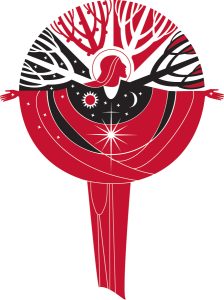This blog post is written by Dr. Benjamin M. Stewart. Stewart is Distinguished Affiliate Professor of Worship at the Lutheran School of Theology at Chicago and pastor to Emmanuel Lutheran Church in Two Harbors, Minnesota.

A view of Assisi the day before the Feast of Creation Ecumenical Seminar began in March 2024
With growing mainstream awareness of environmental crises, several experiments with a liturgical “Season of Creation” have emerged. Now, a significant ecumenical movement is championing the inauguration of a liturgical “Feast of Creation” to be shared across Eastern and Western branches of Christianity. The possibility of the new festival is being discussed by church leadership in the major global denominations and is being considered for introduction as part of the commemoration of the 1700th anniversary of the Council of Nicea in 2025.
The potential new feast would likely be associated with the time between September 1 and October 4, already observed by some as a season of creation. The dates have ecumenical significance: September 1 is the beginning of the Orthodox liturgical year, and in recent decades the date has become associated with care for creation among the Orthodox. It has even more recently been adopted as a day of prayer and action for creation by the World Council of Churches and the Roman Catholic Church – though usually without a liturgical celebration. October 4th is the commemoration of St. Francis of Assisi, one of the most popular occasions on the church calendar associated with care for creation.

Photo of the in-person participants at the Feast of Creation Seminar in Assisi, March 2024
An ecumenical conference – with participation by LWF and ELCA theologians – convened in March 2024 in Assisi, Italy, to study the possibility of a new liturgical festival of creation. (A report designed for wide readership about the conference and next steps is available online here as a PDF.)
There was considerable enthusiasm at the Assisi conference for the new ecumenical festival. Some ongoing questions included:
- How would the potential feast balance the emphases on creator, creation, and creation’s woundedness/healing?
- What would the festival be called? (e.g. “The Feast of Creation” or “The Feast of the Mystery of Creation” or “The Festival of God the Creator,” etc.)
- Would the date of the festival be associated with September 1st or with the September equinox, a day of global balance between light and darkness? Would the festival be marked on a precise date or the Sunday following?
- Which scriptural themes – and specific readings – should anchor the festival? (This is where the first question above gets very real!)
- How might the festival be introduced in the relatively short time before September 2025, and to what extent is ecumenical consistency important in the introductory process and in the liturgical practice of the feast?
It is worth remembering that our existing chief festivals already include creation themes at their heart: the chief gospel reading at Christmas is John 1 (“In the beginning was the Word”), and the first reading of the Easter Vigil is from Genesis 1 (“In the beginning, when God created the heavens and the earth”). As early as Justin Martyr some Christians have noted that every Sunday is a feast of creation as much as it is a feast of the resurrection:
“We hold this meeting together on the day of the sun since it is the first day, on which day God, having transformed darkness and matter, made the world. On the same day Jesus Christ our savior rose from the dead.” (1 Apology 67. Translation in Lathrop, Holy Things, 45.)
The most recent feast to be introduced ecumenically was Reign of Christ / Christ the King, in response to rising fascism in the 1920s (though it was only adopted by Western churches). The possibility of a new Feast of Creation being inaugurated across the global church in both Eastern and Western Christianity holds profound theological promise – even as it too comes at another moment of global crisis.

